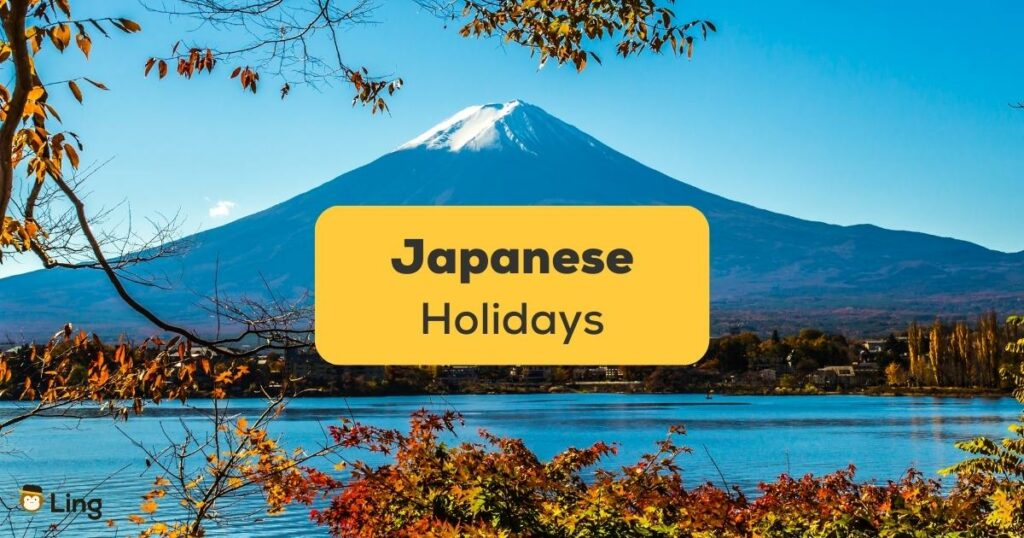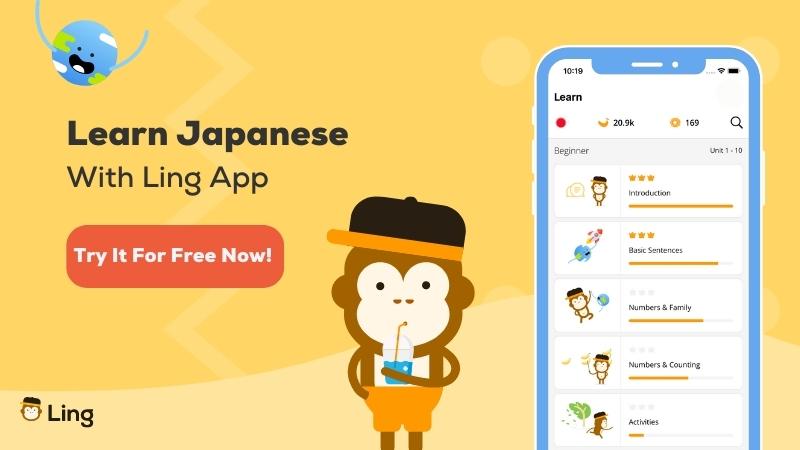Heading to Japan soon? If you don’t want to miss out on amazing experiences because of holiday closures, we recommend you plan ahead! Here, we’ll give you a complete rundown of the Japanese holidays.
Visiting your dream spots in Japan would be a bummer if it closed. So, if you’re short on your vacation time here, make sure you plan it all out so you can hit all the spots you want to see! While time management is key, remember to be mindful of the Japanese holidays too!
What Are The Most Important Japanese Holidays?
Then, it’s time to discover Japan’s peak season. If you’re looking for a peaceful vacation or want to explore Japan during the off-peak season, then make sure to avoid the peak tourist season!
Here are the three most important long holidays in Japan.
- New Year’s Holiday – 正月 (shougatsu)
- The Golden Week – ゴールデンウィーク (gōruden wīku)/黄金週間 (ogon shūkan)
- The Bon Festival – お盆 (obon)
New Year’s Holiday – 正月 (Shougatsu)
Japanese people head off on holiday to celebrate and see family, just like anywhere else.
You’ve probably realized how expensive a flight ticket to Japan can get on New Year’s Eve.
Yes, it’s that time of year again when transport and accommodation prices usually increase. Also, most tourist attractions will be massive crowds of locals and tourists.
The Golden Week – ゴールデンウィーク (Gōruden Wīku) / 黄金週間 (Ogon Shūkan)
What is The Golden Week in Japan? It’s the celebration of Japan’s four national holidays: Showa Day (April 29), Constitution Memorial Day (May 3), Greenery Day (May 4), and Children’s Day (May 5)! Japanese people make the most of the weekends by combining them with these national holidays.
So, Japan’s Golden Week is one of the country’s top 3 busiest holiday seasons, alongside New Year and Obon week.
The Bon Festival – お盆 (Obon)
Obon isn’t a national holiday but a remarkable Buddhist event every year. It’s a moment for Japanese people to remember and honor their ancestors. They believe that their ancestors return to visit their family during this time.
It’s mainly an annual event observed between Aug 13th and 16th. That means it takes place during the school summer holidays. If you’re out and about, be prepared to experience major congestion in many areas.
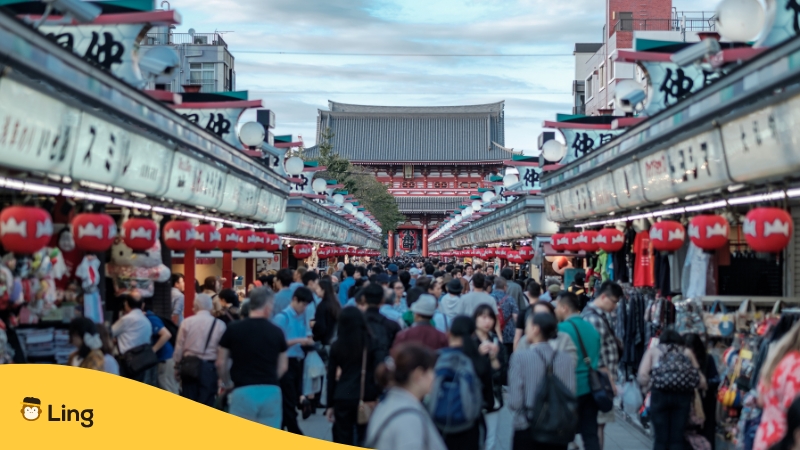
Complete List Of Japanese National Holidays
Gather your planners, and let’s sync on Japan’s national holidays!
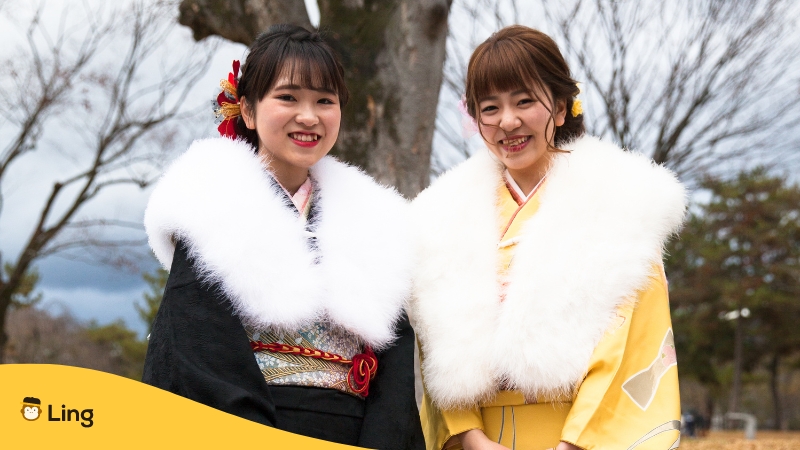
Coming Of Age Day – 成人の日 (Seijin No Hi)
This national holiday marks the coming of age of young adults. It is held to celebrate and encourage all who have officially entered adulthood! They usually celebrate the ceremony at the local and prefectural offices and wrap up with a fabulous after-party with their family and friends!
Facts: In 2022, Japan lowered the legal age of adulthood from 20 to 18.
National Foundation Day – 建国記念の日 (Kenkoku Kinenbi)
This day marks a significant milestone in Japanese history, as 660 BC was the year the first Emperor of Japan was crowned.
Showa Day – 昭和の日 (Showa No Hi)
It’s former Emperor Showa’s birthday.
Constitution Memorial Day – 憲法記念日 (Kenpo Kinenbi)
This holiday recognizes the enactment of Japan’s postwar constitution in 1947.
Greenery Day – みどりの日 (Midori No hi)
It’s a fantastic holiday honoring the memory of the former Emperor Showa, who had a passion for plants and nature, all celebrated on his birthday (April 29)—from 2006 onward, Greenery Day moved to be held on May 4.
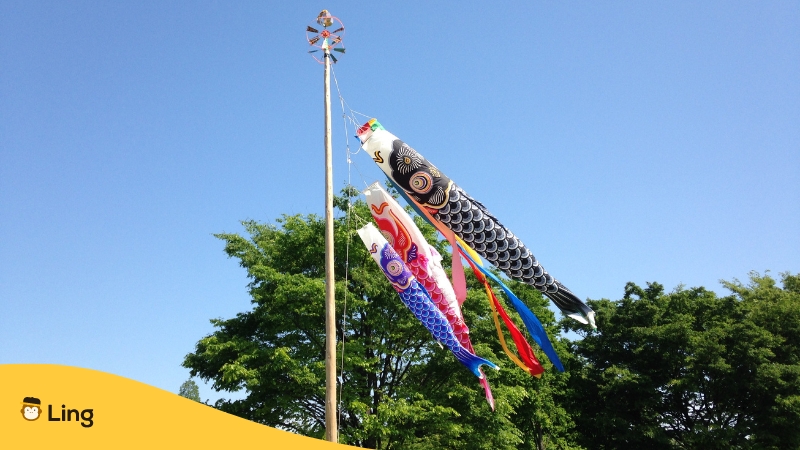
Children’s Day – 子供の日 (Kodomo No Hi)
It used to be called Boy’s Day. In 1948, the Japanese government changed Boy’s Day to Children’s Day, officially making it an occasion to celebrate all children! It’s the day people express gratitude to all mothers who bring the gift of happy and healthy children.
So spice up your pictures with the vibrant flying carp streamers and samurai motifs. You won’t regret it!
Ocean Day (Sea Day/Marine Day) – 海の日 (Umi No Hi)
It’s not just a national holiday to commemorate the ocean; this day also marks the return of Emperor Meiji from his 1876 boat journey to Hokkaido.
Mountain Day – 山の日 (Yama No Hi)
Japan welcomed a new national holiday in 2016 to show its appreciation for nature and give a special shout-out to its majestic mountains.
Respect For The Aged Day – 敬老の日 (Keiro No Hi)
Did you know that the Japanese population is one of the most long-living in the world, with many citizens living over 100 years old?
Every year, the Japanese people honor their elderly citizens on this national holiday. It all began in 1966; they celebrate the fantastic longevity of Japanese elders!
Sports Day – スポーツの日 (Supōtsu No Hi)
On this day in 1964, Tokyo’s Olympic Games kicked off! Not only did it promote health and sports, but it marked the start of the special event!
Culture day – 文化の日 (Bunka No Hi)
It used to be a public holiday because it was Emperor Meiji’s birthday. However, in 1946, post-World War II, the constitution was declared on this day, ultimately leading to the creation of Culture Day!
So now, on this day, people spread peace, love, and freedom on culture day.
In Summary
You must plan ahead when picking your next spot to visit, especially if it’s closed on Japanese public holidays! On the other hand, if you’re on the hunt for a unique experience and want to learn about Japanese culture through their festivals, plan a trip during the festival season and immerse yourself in it all!
We hope this info was helpful and inspires you to keep learning Japanese. If you want to master the language, the Ling App is a must-have! So get it now and start speaking like a pro!
Learn Japanese With The Ling App Now!
Heads up, learners! It’s time to get your phones out and download the unbelievably awesome Ling app so you can start mastering the Japanese language today! What part of the Japanese language has been the most challenging for you? Don’t stress; we’ve got you covered.
Check out this epic list of vocabulary that will help you in any daily scenario! In addition, memorizing words has never been easier when you try our fun games and tune in to the native accents to boost your listening skill!
Join the rest of the Japanese learners who have chosen Ling as their companion! Download the Ling App from Google Play Store or App Store for FREE today. Get ready to be fluent in Japanese soon!
